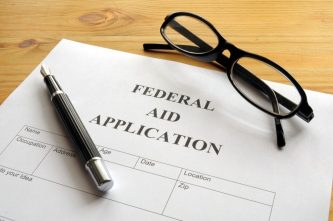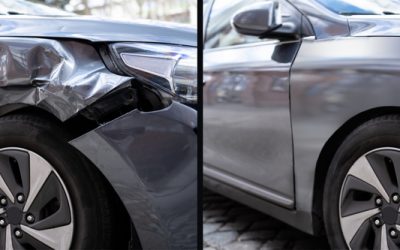No matter the circumstance, hit-and-runs will almost always result in criminal charges against you. However, when you throw DUI into the mix, the penalties you face can become even worse, especially in California.
If you’ve been charged with both a DUI and hit-and-run in California, you’ll need an experienced Los Angeles DUI attorney by your side to assist you. Fighting both of these charges can be extremely difficult and stressful to do alone.
What You Need to Know About Hit-and-Run Laws
California makes it illegal to leave the scene of an accident in two situations: 1) if the accident caused property damage or 2) if the accident injured someone. The first one is covered under California Vehicle Code (CVC) §20002, and the second one is covered under CVC §20001.
Both situations are considered examples of hit-and-run, but they carry very different penalties. Hit-and-run involving only property damage is a misdemeanor, whereas hit-and-run involving injury or death is a felony. So, if your DUI involves a hit-and-run allegation, it’s very serious.
What Are Examples of DUI Hit-and-Runs?
Here are a few common types of hit-and-run DUI cases:
- A driver had two drinks at a bar before driving home. He hits a parked car on the way, but he does not want to be breath tested by police, so he drives off without reporting it.
- A driver already has a suspended license from a previous DUI and is driving illegally when he gets into an accident. The accident is not his fault, but he knows he will get in trouble for driving on a suspended license, so he flees the scene.
- A driver has been smoking marijuana. Late at night, he hits something on the road, but looking in his mirror, he doesn’t see anyone and assumes it is an animal. He continues driving, unaware that he hit a pedestrian.
For a hit-and-run, it does not matter who is at fault in the accident. Even if the other person caused the accident, you have a duty to remain at the scene and report it. If you do not, you can be charged with a DUI hit-and-run in California.
What to Do After an Accident
California law states that all drivers have duties in an accident. Among these duties, you must:
- Immediately stop at the scene.
- Assist anyone who was injured by calling 911.
- Give your name, address, and vehicle registration number to any of the parties in the accident or to law enforcement.
- Provide the name and address of the vehicle owner if it’s not you.
- Show your driver’s license to law enforcement or any of the parties in the accident if requested.
- Immediately notify law enforcement of the accident, especially if it caused a death.
These rules apply to all accidents and collisions, no matter how big or small the damage is and no matter who is involved. For example, hitting a dog or damaging a utility pole are cases where you caused “property damage” and need to report the accident, even though no one else is visibly involved.
What Are the Penalties for a DUI Hit-and-Run?
If convicted of both charges, you will face the general penalties for DUI, as well as the penalties for a hit-and-run. Both of these penalties combined can drastically affect your life, putting financial burdens on you or your family. They can also severely limit your future choices in life regarding employment, higher education, and military service.
Penalties for a felony hit-and-run (involving an injury or death) include:
- $1,000 to $10,000 in fines
- Two to four years in state prison if the accident caused a serious injury or death
- Up to one year in county jail if the accident caused a minor injury
Penalties for a misdemeanor hit-and-run (involving only property damage) include:
- Up to $1,000 in fines
- Up to six months in county jail
However, you only face these penalties if you get convicted. It is possible to defend against a hit-and-run charge even when connected to a DUI. In fact, prosecutors routinely drop these kinds of offenses when you employ a skilled defense lawyer.
DUI Hit-and-Run Penalties Can Negatively Impact Your Life
A DUI hit-and-run can also result in other consequences aside from fines, jail time, and license restrictions:
- Getting rejected from college
- Getting rejected from a job
- Higher insurance premiums
- Difficulty joining the armed forces
- Difficulty obtaining a loan or other financial services
As illustrated with the list above, the punishment you face from a DUI hit-and-run charge in California doesn’t just end after paying a fine and spending nights in jail. You can deal with the repercussions associated with a DUI hit-and-run for years. For this reason, you should choose to defend yourself as much as you can against these charges.
How Do I Defend Against a Hit-and-Run Charge?
In order to convict you of hit-and-run, the prosecutor must prove beyond a reasonable doubt that the following:
- You were involved in the accident.
- You were aware of the accident.
- You willfully failed to perform one of the duties required by law.
Your duties include pulling over, exchanging information, and lending aid to those who were injured. If the prosecutor is unable to prove these three points, then you cannot be convicted of a hit-and-run offense. This may or may not have any impact on the charge of DUI.
Because the law is so complex and every case has unique circumstances, it is crucial to rely on an experienced California DUI lawyer to ensure you have the best outcome for your case. There are some common ways you can defend yourself against this combination charge.
You Did Not Know About the Accident
Sometimes, you either were not aware of an accident at all or had no reason to suppose that it caused any injuries. For example, let us suppose you inadvertently cut off another driver. The other driver may have swerved to avoid you and gone off the road. Depending on the circumstances, you may never have seen this happen or have any reason to believe it involved you.
You Did Not Leave the Scene Willfully
Sometimes, it is not safe to stay at the scene of an accident. For example, if the other driver begins acting aggressively toward you, or if the accident happens in an area where angry bystanders are threatening you, you may leave the accident scene for your personal safety. This defense is best used if you call the police immediately to report the accident once you are safely away from the scene.
You Were the Only One Injured
If you were the only person injured, you cannot be convicted of a felony hit-and-run because your actions did not cause injury to anyone else. However, you can still be convicted of a misdemeanor hit-and-run if there is property damage. If possible, you should find the property owner and tell them what happened. If you do not attempt to identify yourself and tell the owner the details, you could face an additional misdemeanor charge.
If no one is around, then your duty is to leave your name and contact information in a conspicuous place on the property. Include the details of the event leading to the damage. You should also notify the local authorities of the accident instead of waiting for the property owner to do so. Keep in mind that property can mean another vehicle, a mailbox, a gate, or someone’s pet or livestock.
Other Defenses You Can Use for DUI Hit-and-Runs
There are other possible defenses that a skilled attorney will use to reduce the penalties for your DUI charge. For example, your lawyer could argue that you were not involved in the accident if you can present evidence that you were not at fault for the accident, such as if your car were stolen or driven without your knowledge. The right defense to use depends on the circumstances of your case, and your DUI defense lawyer can choose a strategy that will work best for you.
Some additional examples of unusual circumstances that could be used as defenses include:
- If you were injured or passed out as a result of the accident, and your passenger pushed you from the car before driving away
- If you are involved in an accident on a highway that does not have accident lanes, you may have traveled to the next exit ramp before stopping to contact the police
- If another driver hits you during a road rage incident and stopping could risk your safety, you may try to escape before reporting the incident
- If you were injured such that you could not render aid to another person, you would not face charges on that point
What Can a DUI Hit-and-Run Lawyer Do for Me?
Hit-and-run charges are hard to prove, but that does not mean you should try to argue your case on your own. The best way to attempt getting charges dropped is to hire a qualified DUI hit-and-run lawyer who understands the legal complexities of these kinds of cases. A competent lawyer will usually have developed good working relationships with the county prosecuting attorneys and can negotiate with them before going to court.
Your attorney and their legal team can provide important services, such as:
- Gathering evidence pertinent to your DUI case
- Representing you and your best interests in court
- Offering prompt legal advice and providing you with information on the legal options available to you
- Helping you get the best plea deal, if available
- Consulting with witnesses and experts and getting their supporting testimony
Your attorney will conduct a consultation to determine the details of your case, then investigate any issues with the arrest or charging procedures that may work in your favor. They will conduct discovery in cooperation with the prosecutor’s office to find every way to defend you against your DUI hit-and-run charge.
Schedule an Appointment with a DUI Hit-and-Run Attorney Today
When you need help with DUI hit-and-run charges in California, trust our firm to guide you through the proceedings. Our Los Angeles DUI attorneys dedicate themselves to your case and fight hard against your charges. Contact us today using our online form for your free consultation.






